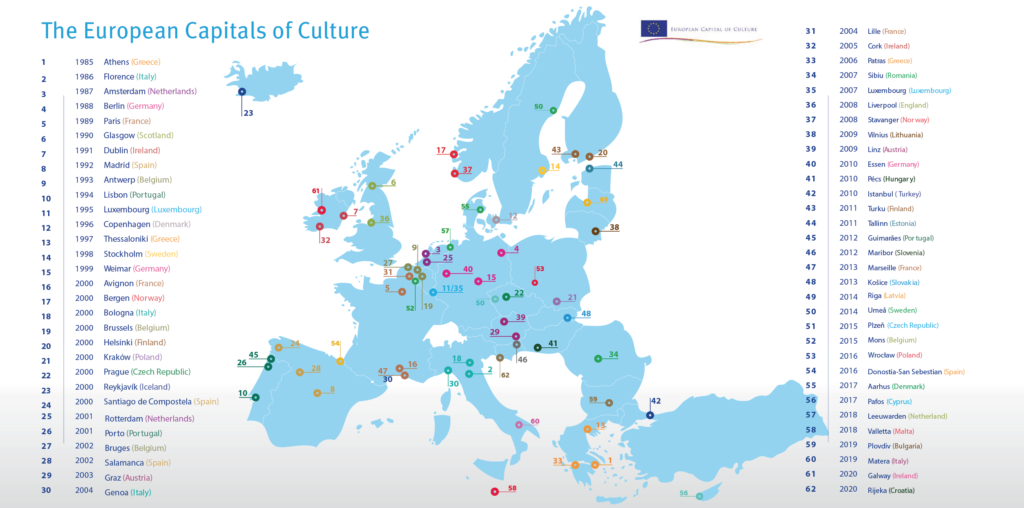The European capitals of culture are born from a simple dream: unite the Europeans through their differences but also their similarities

In 1985, the Greek Minister of Culture, Melina Mercouri, took the initiative to start the European Capital of Culture program. The idea was to make cities the centre of cultural life across Europe and Culture the centre of economic development at local, national and European level.
Since 1985, 60 cities have become ECoC, from Athens in 1985 to Matera and Plovdiv in 2019 and the program has become one of the flagship initiative of European Commission and all EU Member States, as well as candidate countries and potential candidates for EU membership.
Since 1985, the action has switched from the primary concept of highlighting already existing gems of European cultural heritage to a tool to discover new and small cultural places. Other major changes have occurred so far, but at the heart of the action still remains the significant purpose to reach sustainable development and foster urban regeneration, promote cultural production and consumption, establish new partnerships and then, boost image and raise visibility and profile of European destinations and Cultural and Creative Industries operators both at EU and international level. Today, the European Capitals of Culture are an integral part of the Creative Europe programme 2014–20, whose ambition is to promote Europe’s cultural diversity and cultural heritage and to reinforce the competitiveness of our cultural and creative sectors.

